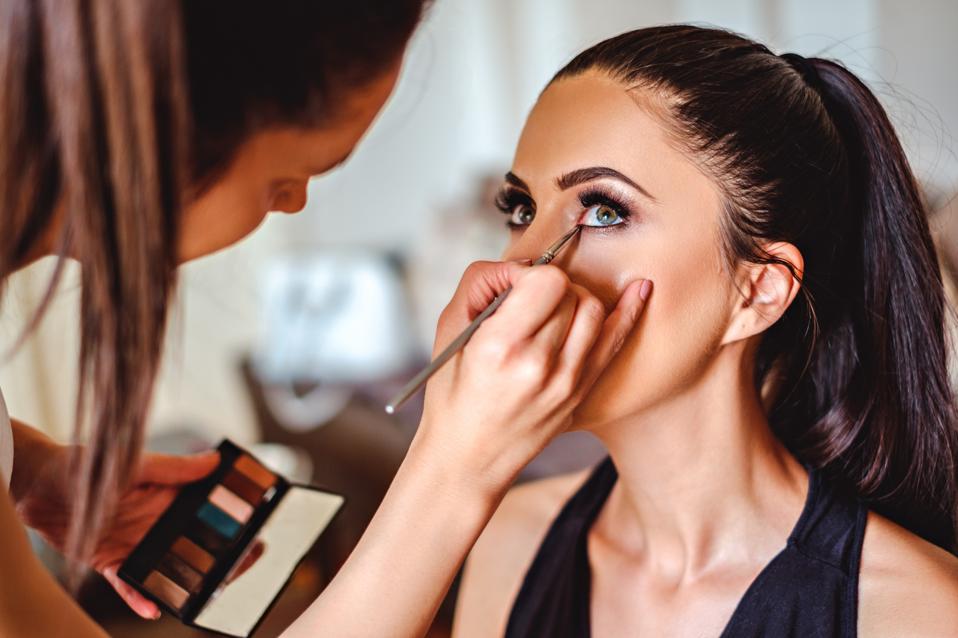In the dynamic landscape of beauty retail, the rise of pop-ups has revolutionised the way brands connect with consumers, especially in a digitally dominated age. Over the past year, the transformation of these temporary venues has shifted dramatically from simple photo ops to rich, interactive experiences that merge digital innovation with hands-on learning.
The evolution of beauty pop-ups into highly engaging, immersive environments reflects a broader industry trend towards experiential marketing. Harrods, a venerable name in luxury retail, has embraced this trend with its ‘H Beauty on Tour’. The initiative features a pink double-decker bus that travels to various locations, bringing exclusive beauty experiences directly to consumers. This mobile pop-up offers activities ranging from personalised skincare advice at The Inkey List station to mini makeovers by Drybar, making luxury beauty both accessible and interactive.
The H Beauty bus is steered by the iconic British luxury department store known for its opulent offerings: a novel approach to engage with younger consumers. As the pink double-decker bus rolls into cities like Edinburgh, Milton Keynes, Chester, and Newcastle, it carries not just beauty products but also a clear message: Harrods is tuning into the dynamic world of youthful consumer trends.
The initiative is cleverly designed to capture the attention of a demographic that is increasingly becoming attuned to beauty brands from a young age. This shift is significant; it indicates Harrods’ acknowledgment of the growing influence of younger consumers who are both trend-conscious and brand-loyal. The choice of a bus tour is particularly astute, offering a mobile and immersive experience that resonates with a generation accustomed to experiential retaill
The H beauty tour bus is not just a traveling sales pitch; it is a carefully curated experience. Featuring popular brands like Drybar, Gisou, Maison Margiela, Sol de Janeiro, and The Inkey List, the bus offers everything from scent experiences and skincare advice to complementary makeovers and blow-dry styling sessions. Each stop promises unique activities; discovering honey-infused lip oils or debunking skincare myths, for instance. Each visit becomes memorable and shareable, particularly on platforms like TikTok, where Harrods is also launching a shop.
This blend of experiential marketing and social media engagement underscores Harrods’ strategic pivot towards digital-savvy methods to appeal to a younger audience. It is a recognition that today’s young consumers are not just passive purchasers but active participants in those brand narratives that resonate with them.
The integration of TikTok into the H beauty tour’s marketing strategy is particularly noteworthy. This platform has become a cornerstone for young people to discover and follow beauty trends, and by launching a TikTok shop in conjunction with the tour, Harrods is effectively speaking the language of its intended audience. This move not only amplifies the reach of the H Beauty tour but also enables real-time engagement and feedback from participants, creating a loop of interaction that can lead to better consumer insights and product offerings.
The H Beauty tour does more than just promote beauty products; it serves as a platform for education and engagement. For instance, at the Sol de Janeiro station, visitors can learn about sun care, an essential aspect of skincare. This educational component ensures that consumers walk away not only with products but also with valuable knowledge that can influence their buying decisions and lifestyle choices.
Harrods’ decision to launch the H beauty tour could set a precedent for how established luxury retailers can engage with younger generations. By moving beyond the traditional confines of the department store and entering the everyday spaces of consumers, Harrods is making luxury more accessible and relatable. This approach not only helps to build brand loyalty among younger demographics but also refreshes the brand’s image, through innovation and interaction
The beauty sector has firmly embraced the pop-up trend, transforming these ephemeral retail spaces into a staple strategy for brand engagement and consumer interaction. Brands like Glossier and MAC have effectively utilised pop-ups to create unique, immersive experiences that do more than just showcase products. Glossier’s pop-ups often reflect the local culture and aesthetics of the cities in which they appear, providing a personalised touch that resonates with local consumers. Similarly, MAC has leveraged pop-up shops to launch limited-edition collections and collaborations, using the excitement and exclusivity of temporary spaces to generate buzz and drive immediate sales.
Beyond simply selling products, beauty pop-ups are increasingly focused on creating a memorable brand experience. Sephora, for example, has hosted interactive pop-ups where customers can engage with new technologies, such as augmented reality mirrors that allow them to try on makeup virtually before making a purchase. Benefit Cosmetics pop-ups offer engaging and interactive themed attractions that align with their product launches, like beauty diners or brow bars. Such experiential marketing in pop-ups reflects a broader industry move towards deepening consumer engagement and loyalty through innovative and personalised experiences.
Pop-up events like the H beauty tour represents a strategic response from the beauty industry to a changing consumer landscape, where digital engagement and experiential retail become key drivers of growth. These pop-ups are not merely places to sell products; they are curated experiences that resonate with consumers; they encourage interaction, learning and brand loyalty in an increasingly digital world.

